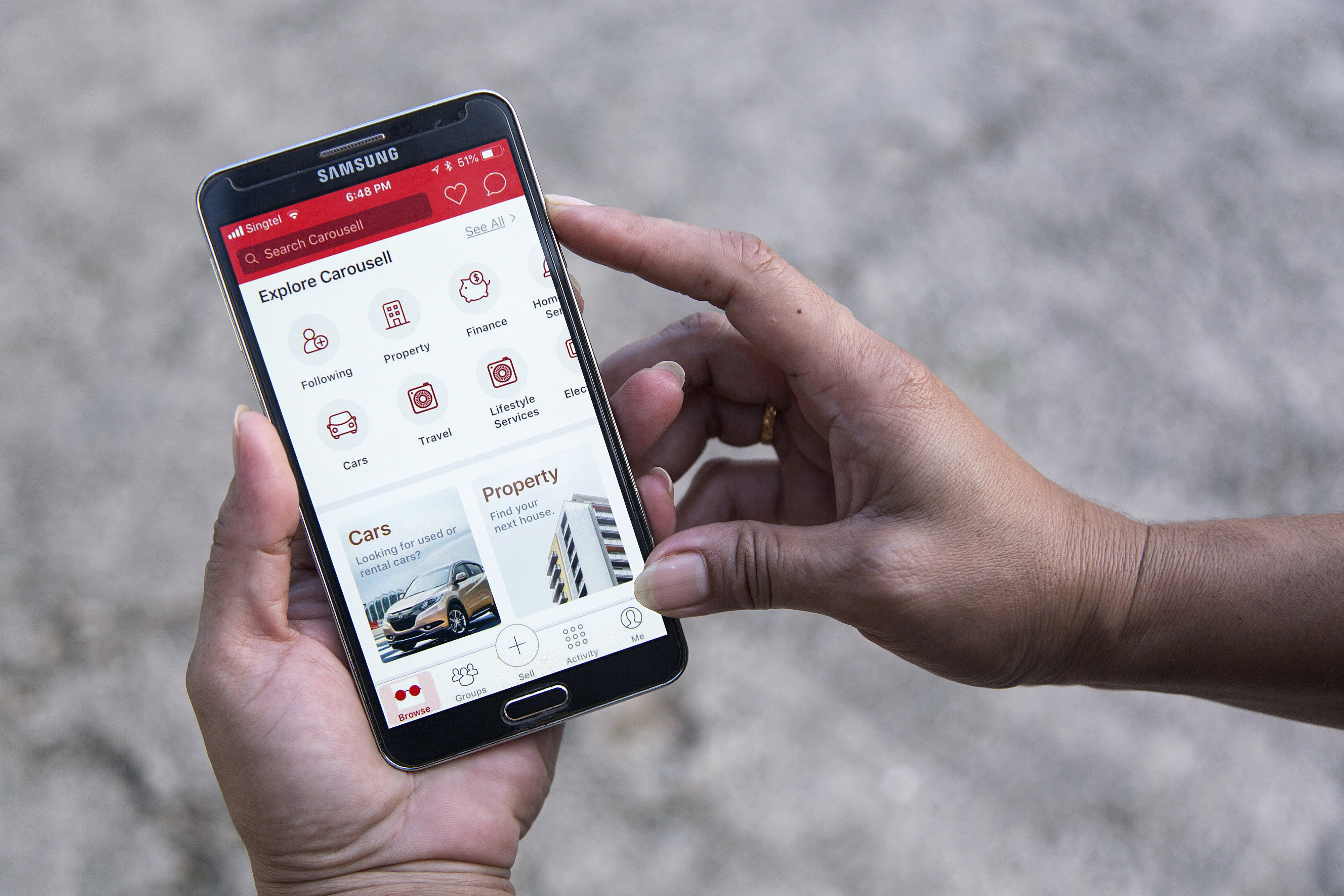
SINGAPORE — Online classifieds business Carousell is on its way to becoming one of Southeast Asia's next unicorns — start-ups with a valuation over $1 billion — but co-founder and CEO Quek Siu Rui told CNBC the company is focused on becoming profitable over the next three-to-four years.
Carousell last month said it received an investment amounting to $80 million from a consortium led by South Korean tech company Naver, the creator of messaging app Line. Other investors in the consortium included Mirae Asset-Naver Asia Growth Fund and NH Investment & Securities. That pushed Carousell's valuation above $900 million.
Regulatory filings and media reports indicated that only a portion of the investment involved the issuing of new shares. Some of Carousell's existing shareholders including Golden Gate Ventures, Sequoia Capital India and 500 Startups as well as Quek and his co-founders sold parts of their stakes in the company to Naver's consortium.
Morale boost
Quek told CNBC in an interview the investment was a morale boost at a time when many start-ups are struggling with the fallout from the coronavirus pandemic.
"I think for us this transaction, this round of funding that we closed doesn't really change our strategic focus as a company," he said, adding Carousell's aim is to stay focused on cementing its leadership in Southeast Asia's online classifieds space.
The goal, he said, is to get the company to profitability in the next three to four years. One way the company intends to achieve that is by investing in technology talent, which is already scarce in this region and made more so by the pandemic. Many countries have closed their borders and other governments have encouraged companies to hire locally in light of large job losses this year. Moreover, control over the infection outbreak varies by country and could potentially make people hesitant to relocate.
"I think the tech recruitment challenge has always been difficult, but I would say that in a time like this, it has actually been extremely difficult," Quek said.
Focus for 2021
Like other online classified platforms, the idea behind Carousell is straightforward: Users snap pictures of things they want to sell and list them, with relevant details, on the marketplace for buyers.
As the pandemic forced more people to stay at home, experts have said that consumption patterns are permanently shifting. People are turning more to e-commerce for their shopping needs and that puts companies like Carousell and others in a prime position to tap into Southeast Asia's potentially $300 billion internet economy.
Quek said Carousell saw more than a billion dollars worth of transactions on its platform between February and June. Many people are turning to used goods to improve their remote working experience, including buying more electronics and home improvement products as well as embracing fitness and sports categories, he explained.
"Because people are staying home more, one strategic focus for us going forward in end of 2020 and all of 2021 is the services category. So this is a big new business area for us that we are doubling down on," he said, adding that includes demand for home services like plumbing, house cleaning, and maintaining air conditioners.
Ultimately, Carousell's goal is to make the buying and selling of used goods a priority by making it as easy as possible, according to the co-founder.
"That means continued investments in great talent, investments in areas like how do we make selling even simpler? How do we make buying and discovery of items a lot more desirable, a lot more personalized. How do we improve user experience in some of our strategic categories, like autos, property and services," Quek said.
"We think the core of this is really a great user experience and therefore hiring key tech talent will continue to be a focus for us," he added.
Exit strategy
Singapore-based newspaper The Business Times reported that Carousell's revenue more than doubled to $15.7 million in fiscal 2019, but the company's net loss swelled to $39.4 million, from $25 million a year earlier. The newspaper also said Carousell was aiming for an exit by 2024 and potentially trying for a valuation of at least $1.13 billion.
Quek said the 2024 timeline was a standard exit clause for investors. "For us, having it in there really reflects a best effort basis, legally, in writing. But our focus with our investors, we're very, very privileged to have them very supportive of our long-term vision. There are no definitive exit plans laid out at all."
Instead, Carousell will aim for profitability in the next four years, cementing its position in the eight markets it operates in and invest in its products.
"If we do that well, I think many exit options will open up, especially if it offers investors liquidity. But we just haven't focused on that topic at all," Quek said and added that potential expansion outside Southeast Asia remained in the start-up's future considerations.
"Exit" - Google News
October 07, 2020 at 07:16AM
https://ift.tt/3d4L2UA
Southeast Asia's classifieds start-up Carousell aims for profitability in 4 years, potential exit thereafter - CNBC
"Exit" - Google News
https://ift.tt/2zNkU0N
https://ift.tt/2YrnuUx
Bagikan Berita Ini














0 Response to "Southeast Asia's classifieds start-up Carousell aims for profitability in 4 years, potential exit thereafter - CNBC"
Post a Comment